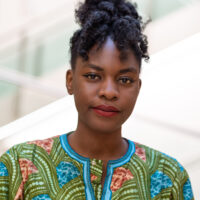
Key Quote
“When digital citizens know their rights and have the right skills, this trickles down to communities everywhere; it lets everyone know that the internet can be used to make their own voices heard and count.”
In a world where the line between “digital” and “real” continues to blur by the day, one Zambia-based activist is helping young people harness their power online in order to make their voices impactful in the real world. Through nonprofit work in what she calls “digital citizenship,” Esther Mwema is building the capacity of a new generation of digital citizens to participate in a more democratic digital future—one where individuals are empowered with dignity, autonomy, and the agency to shape the prospects of their communities and the courses of their own lives.
Mwema’s experience with the digital world started at the age of 16 when she taught herself to type. She took to the medium quickly and before long, she started her first job—an administrator at an internet café. By the age of 17 she had already founded her first nonprofit, SAFIGI, which focused on promoting a safer world for girls. At the age of 23, she collaborated with other youth leaders in the Internet Society Youth@IGF program to establish another female and youth-led NGO, Digital Grassroots (DIGRA).
“I realized that technology had the power to change my life—to empower me as an individual to express myself creatively, to find community, and to make my voice heard in a meaningful way—but it could also change the world,” Mwema recalls. “I then wanted to extend this power to young people everywhere with that vision, along with the tools to make it a reality.”
Digital Grassroots allows Mwema to do just that. DIGRA proactively equips youth and community leaders from around the globe in addressing internet related issues in their local context through digital literacy, networking, and activism. The goal is to engage youth in internet governance, thereby connecting grassroots communities to institutions that enhance their autonomy in digital citizenship. This allows young people to participate openly and democratically in the digital ecosystem, and enables them to have more control over their own futures, both online and off.
One of the ways Mwema’s NGO does this is through the Community Leaders program. This six-week program engages grassroots activists and leaders with local projects to build their capacity in Internet Freedom, Internet Advocacy, and Digital Rights. The community leaders are given mentorship and capacity-building support, as well as collaborative community-building opportunities via connections to other individuals and institutions working on similar issues. The Community Leaders strengthen democratic participation in their local context by enabling a bottom-up and open approach, by amplifying the voices of the underrepresented in the internet ecosystem.
Digital Grassroots works with young people in more than 50 countries across the world, including the Americas and the Asia-Pacific region. But it has a particular emphasis on Mwema’s home continent. “Most of Africa’s population is below the age of 25,” she explains. “These young internet leaders have the power to positively shape their own destinies, the choices of their governments, and our collective democratic future—but only if they have the tools and knowledge to take ownership and control.”
These rising citizens also hold the keys to Africa’s democratic future.
Mwema’s focus is on bridging the gap between high level decision makers and grassroots communities. Through Digital Grassroots eight-week Ambassador’s program, she is pairing young newcomers in cyberspace with industry experts who show them how to cultivate their own power in the digital space. This Ambassadors Program includes an online internet literacy course on Moodle that is focused on themes like internet for security, internet for social life and internet for economy. Mwema believes a democratic future enabled by technology is only possible when the underserved are given the literacy, practical skills and language to make their voices heard on the impact that digital issues have in their community.
The ripple effect of these programs by Digital Grassroots have evident impact “in the real world” through various community engagement projects done by 172 Ambassadors, 21 Community Leaders, and 20 Digital Rights Advocates, and growing. Some outcomes of this work include a communique on Youth Resolutions in Internet Governance, LGBT rights in the Cyberspace, a Digital Rights Learning Exchange program, and a short film ‘On this Side of the Web’ that premiered at Mozilla Festival, among more.
One participant from Nigeria chose to create a guidebook to help young people navigate the online space in safer and more meaningful ways, while another from Benin conducted trainings on software development technologies such as JavaScript, Python, and Django for local youths. A young woman from Uganda even used what she learned to help reduce the number of street children in her own community via the use of content and activities designed to capture kids’ attentions and attract them out of the streets while simultaneously building the very digital literacy skills that can improve their own prospects for the future.
“I believe in a citizen-led internet with a community-centered, bottom-up approach—one that values input from the civil, public, and private sectors,” Mwema explains. “With the private sector, it’s critical to listen to the needs of grassroots communities in the global majority. These voices often go unheard. Yet, it is the power of their innovation that can ultimately bridge the digital divide to establish a more democratic future.”
And Mwema certainly believes that a more democratic future is possible, but only when everyone has a voice.
“The internet is more than just a tool for social media, it’s the platform that allows us to make our voices heard democratically—and that gives us the skills to impact our own communities in real life. This great equalizer has made so many things possible already and it has so much potential. That’s why I do what I do,” Mwema explains. “When digital citizens know their rights and have the right skills, this trickles down to communities everywhere; it lets everyone know that the internet can be used to make their own voices heard and count.”
Key Takeaways
- Her NGO equips youth and community leaders from around the globe with the digital citizenship skills that enable more control over their own futures, both online and off.
- One of the ways Mwema’s NGO does this is by working with grassroots activists who already have projects in their local communities but want to expand with greater digital capabilities.
- A second way she advances the mission of Digital Grassroots is by pairing young people who may only casually use the internet with skilled experts who show them how to cultivate their own power in the digital space.

